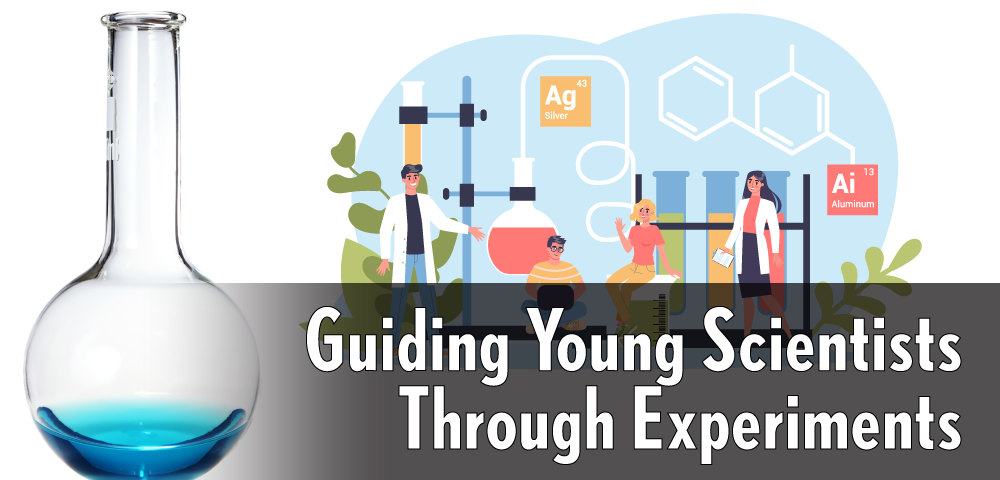
By Brooke Stoneman, Former FCPL Librarian
How many times have you been stumped by questions of “why” or “how” from your children? Kids are curious, sometimes insatiably so. With a little practice, we can guide our children through age-appropriate scientific thinking and model how they can begin to answer their own questions.
One place to start is developing a skill set of experimentation. The scientific method includes asking questions, making predictions, gathering data, analyzing the data and drawing conclusions. It sounds complicated but can be as simple as letting children experiment with everyday objects and ask questions. According to childhood development website First Discoverers, guiding your children with questions rather than directing them will encourage the most learning and engagement. Also, by valuing process over results, we can empower children to continue asking questions and seeking answers for themselves. Questions like “I wonder what would happen” or “what do you think it means” can model scientific thinking for even our youngest experimenters.
The education website Resources for Early Learning offers a few more tips for experimenting with your child:
- Work alongside children. Talk out loud as you experiment and model thought processes.
- Watch and listen – follow their lead.
- Ask open-ended questions that engage their problems-solving abilities.
- Encourage peer discussion. Provide opportunities for children to explain their thinking to peers and compare.
- Inspire children to think like scientists by using scientific language like “observe,” “predict” and “theory.”
Facilitating scientific thinking about experimentation doesn’t just create lifelong science lovers. As explained by First Discoverers, kids also grow in areas of communication, collaboration, teamwork, perseverance, analytical thinking, reasoning and problem solving.

